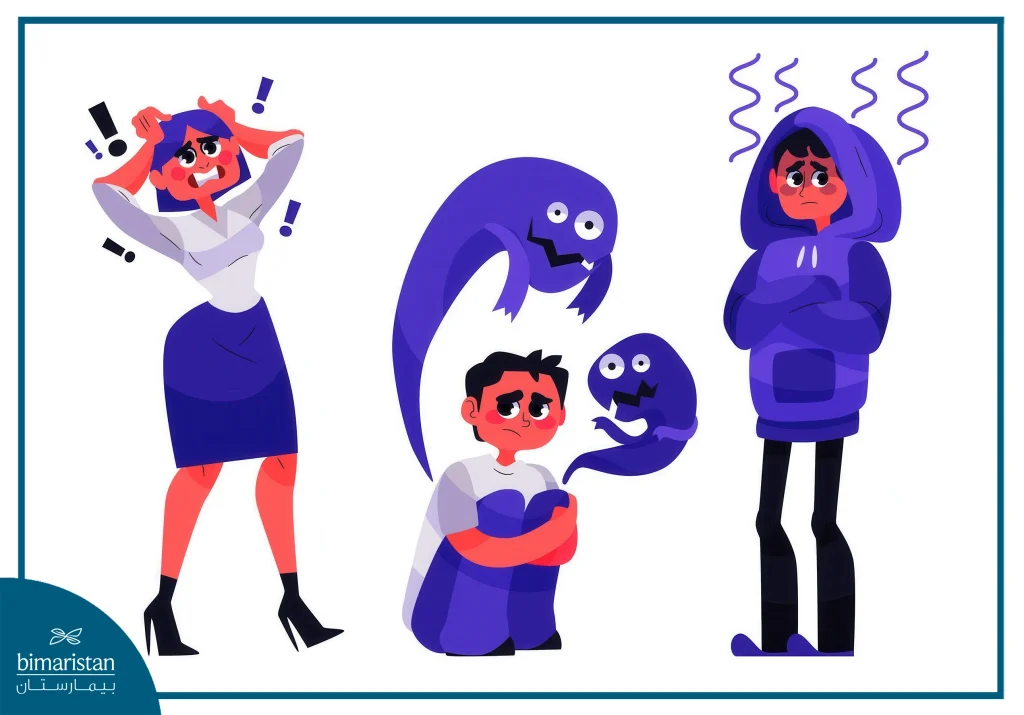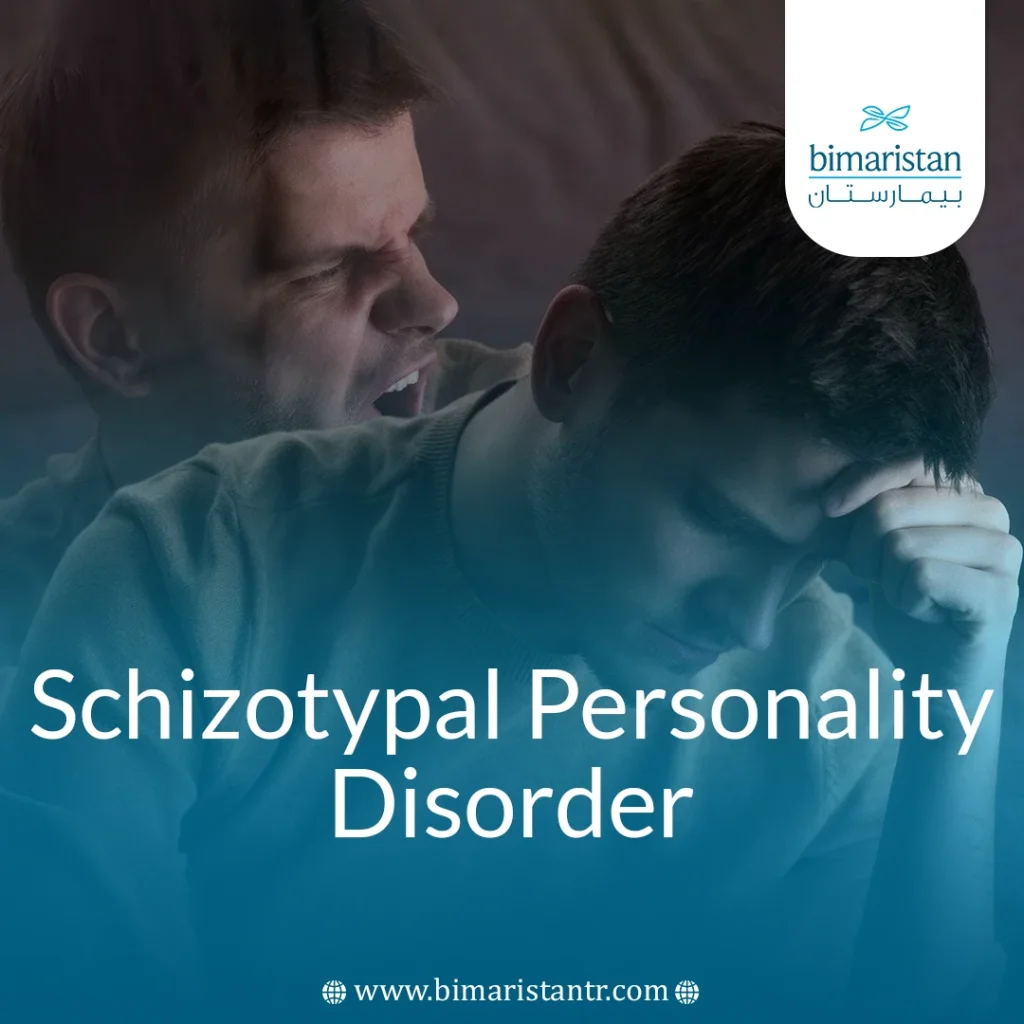Schizotypal personality disorder is one of the most enigmatic and complex personality disorders, combining features of unconventional thinking, bizarre behaviors, and profound difficulties in forming social relationships. Although partially similar to schizophrenia, it has a lower severity of symptoms, making schizotypal personality disorder a unique condition that falls in the gray area between psychosis and personality disorders.
Studies suggest that up to 3–5% of the population may suffer from schizotypal personality disorder, but it is often misdiagnosed or neglected due to its chronic and outwardly unobtrusive nature. However, the effects on sufferers’ lives are profound, ranging from social isolation, to difficulties in work or education, and even an increased risk of developing depression or full-blown psychotic disorders later in life.
What is schizotypal personality disorder?
Schizotypal personality disorder is a personality disorder characterized by strange and unusual patterns of thinking, behavior, and appearance, making people with the disorder appear distinctly different from others. These people have great difficulties in forming and maintaining social relationships, tend to be isolated and lonely, and feel very uncomfortable in social situations, which may lead them to avoid interactions with others altogether.
The disorder is characterized by irrational beliefs and thoughts, such as a strong belief in telepathy, a sixth sense, or interpreting ordinary events as carrying hidden messages addressed to them. Sufferers may also have perceptual distortions, where they perceive stimuli that are not actually present (such as hearing faint sounds or seeing passing shadows), without reaching the level of clear hallucinations seen in schizophrenia. A strange and unfamiliar speech style also characterizes these people, as their speech may be vague, stilted, or full of symbolic references that are difficult for others to comprehend. In addition, they may exhibit unusual behaviors or outward appearances, such as wearing mismatched clothes or being overly interested in strange and unfamiliar topics.
On a social level, people with ADHD often misinterpret social cues, believing that facial expressions or fleeting gestures from others carry hidden meanings or bad intentions towards them, which increases their anxiety and reinforces their tendency to withdraw from interactions. These difficulties make their social life very limited, and they often live in relative isolation due to their inability to adapt to those around them. However, these symptoms can cause significant psychological distress and negatively impact their quality of life if the condition is not diagnosed and treated appropriately.

Schizotypal personality disorder symptoms: Clinical signs & psychological effects
The schizotypal personality disorder symptoms, in which people exhibit bizarre behavioral and intellectual patterns that affect their social interactions, are varied, and the main symptoms of this disorder include:
- Loneliness and lack of friends: People with ADHD rarely have close friends outside of family.
- Superficial feelings or limited emotional responses: Emotional coldness or laughing and crying in inappropriate situations.
- Believing in strange or superstitious beliefs: Belief in telepathy, magic, and the supernatural.
- Speaking in a strange way: Using strange phrases in speech, or speaking in a mysterious way.
- Excessive suspicion and paranoia: They are suspicious of others’ intentions for no reason and believe they are being deceived.
- Semi-delusional or unusual thoughts: Feeling the presence of deceased or non-existent people.
These symptoms increase the risk of depression because of their constant feeling of being different and not belonging, and they may find it difficult to work or study, due to their poor communication skills and tendency to isolate themselves.

What is the difference between schizotypal personality disorder and schizophrenia?
Although these symptoms are similar to those of schizophrenia, schizotypal personality disorder differs from schizophrenia, as people with schizophrenia suffer from complete hallucinations and delusions, and suffer from acute psychosis, where they are completely disconnected from reality, while people with schizotypal personality disorder do not suffer from complete hallucinations and delusions, but only from semi-delusional thoughts and remain partially in touch with reality.
The main features: Strange thinking and unusual behaviors
People with schizotypal personality disorder often believe that they have supernatural abilities that distinguish them from others, such as believing that they can read minds and that their dreams are predictions of the future, they are overly suspicious of those around them, they feel that they are always being watched, and they tend to interpret ordinary behaviors as being secretly directed at them, for example, someone may interpret a red traffic light as a threat from an unknown person.
People with schizotypal personality disorder have a strange and mysterious way of speaking, where they use complex vocabulary unnecessarily, and they often have distracted speech, sometimes going off topic. People with this disorder are characterized by a strange dress pattern, where their clothing is inconsistent and strange, such as wearing a heavy coat in the summer, and they have strange rituals, as they may touch objects in a strange way before using them, and they may whisper to themselves in the middle of a large gathering in a strange way. They also have inappropriate reactions, such as laughing when someone dies and crying when they watch a funny show.
Social isolation: How does it affect interpersonal relationships?
People with schizotypal personality disorder tend to isolate and stay away from social interactions, and suffer from difficulty in emotional communication, as they are unable to express their feelings or understand the feelings of others, and this will affect their family and emotional life, in addition, these people find it difficult to work in groups, and prefer isolated professions, which may make it difficult for them to find the right job for them.
Schizotypal personality disorder causes: Genetic and environmental factors
The exact causes of schizotypal personality disorder are still unknown, but studies indicate that genetic and environmental factors may be the main cause of the disorder, and only one of them may lead to the development of the disorder, but genetic factors are believed to play the largest role in the development of the disorder.
Genetic factors and their impact on the disorder
Studies show that this disorder is more common in people who have relatives with schizotypal personality disorder or similar disorders such as schizophrenia, in addition to the role of brain chemistry imbalance at the level of neurotransmitters such as serotonin and dopamine, and research suggests that abnormalities in brain structure (such as malformations of the prefrontal cortex or hippocampus) play a central role in the development of this disorder.
Environmental factors and their impact on the disorder
Factors have a smaller role than genetics in schizotypal personality disorder, but they still have an impact on the development of the disorder, including environmental factors:
- Childhood trauma, such as emotional neglect or physical or psychological abuse
- Abnormal socialization in family environments that are troubled or lack emotional warmth
- Deprivation of healthy social interactions while growing up
There may be a combination of genetic and environmental factors that make the incidence of the disorder high.
How is schizotypal personality disorder diagnosed?
Some symptoms of schizotypal personality disorder may resemble those of other disorders, and some may resemble those of substance abuse, but a combination of certain symptoms is considered strong diagnostic evidence of the disorder:
- Believing that ordinary events carry a special personal meaning or threat
- Strange beliefs or magical thinking
- Unusual perceptual experiences, such as feeling the presence of unreal objects
- Excessive skepticism and paranoia
- Strange behavior and appearance, such as wearing mismatched clothes
- Lack of close friends and relationships
- Excessive social anxiety, even with close people
- Strange and ambiguous speech, such as the use of unnecessarily vague and ambiguous expressions
- Inappropriate reactions or emotional coldness
According to the diagnostic criteria in the American Psychiatric Association’s manual, the presence of five or more of the above symptoms on a consistent basis is highly suggestive of schizotypal personality disorder.
Treatment methods for schizotypal personality disorder: From psychotherapy to medication
Fortunately, this disorder is treatable, but it requires a multifaceted intervention, including psychotherapy and pharmacotherapy, with a focus on improving social functioning and improving symptoms associated with the disorder, with cognitive behavioral therapy being the best proposed treatment from a psychotherapeutic standpoint.
Psychotherapy: Cognitive behavioral therapy as an option
Cognitive behavioral therapy aims to modify the distorted or irrational thoughts and beliefs that a person with schizophrenic personality disorder has, such as referential or magical thoughts, train the patient to distinguish between realistic and unrealistic or delusional thoughts, and improve social skills to reduce isolation, engage the patient in social life, and improve family and emotional relationships:
- Cognitive behavioral therapy through distorted thought modification aims to challenge irrational thoughts through several techniques, such as daily thought journaling, where patients are asked to write down their strange thoughts, which are then analyzed and discussed with the therapist. Irrational thoughts are replaced with more balanced ones, for example, the idea that the patient’s neighbor is spying on him is changed by making him ask himself questions such as “Do I have evidence that my neighbor is spying on me?” and “Is there any other explanation for his behavior?” From there, this idea is modified to become more appropriate.
- Cognitive behavioral therapy by improving social skills: It aims to reduce social isolation and improve interaction with others through several techniques, such as role-playing and feedback, which helps the patient to understand the impact of his words and behavior on others, and train the individual on how to start a conversation or how to express his feelings in a clear way.
Cognitive behavioral therapy is the preferred treatment for this condition, which requires periodic medical follow-up and a systematic plan developed by the specialist doctor, in addition to the role of family support for the person, which ensures the treatment of this condition and the improvement of symptoms by a high percentage.
The role of medications in managing symptoms
Although psychotherapy, especially cognitive behavioral therapy (CBT), is the cornerstone of treatment for schizotypal personality disorder, medications can play a helpful role in managing some of the bothersome symptoms. Unfortunately, there is no medication specifically approved for this disorder, but some psychiatric medications may be used to treat specific symptoms. Antipsychotics such as risperidone and olanzapine are used in low doses to relieve distorted thinking and excessive suspicion, and antidepressants such as selective serotonin reuptake inhibitors (SSRIs) are used when there are accompanying symptoms of depression or anxiety with this disorder, which ultimately aims to relieve the accompanying symptoms and not fully treat the disorder on its own.
How to support someone with schizotypal personality disorder: Tips for family and friends
Supporting a person with schizotypal personality disorder requires understanding, patience, and clear strategies to help them cope with symptoms and improve their quality of life, and family and friends should know a number of things:
- A person with ADHD does not behave strangely on purpose, but rather due to distortions in thinking and cognition, so you should try to avoid criticizing these behaviors directly, but rather try to understand their motivations
- You should avoid innuendo or sarcasm, as he may misinterpret it or may not understand it
- Try to use short sentences and direct questions to avoid misinterpretation
- Encourage the person to seek treatment without coercion, avoiding threats and insistence, so as not to increase the person’s skepticism
- Engage in low-stress activities such as walking together or watching a movie
- If symptoms worsen, call your doctor
The role of family and friends in supporting the patient through the previous advice is great, and it may eventually lead to his conviction to start treatment, and then the advice of his close friends and family will be the reason for his recovery from this disorder.

The importance of a supportive environment in treatment and recovery
The environment plays an essential role in helping people with schizotypal personality disorder to recover and improve their quality of life, as research shows that patients who have good family and social support achieve better treatment outcomes than those who live in a poor family environment, and notice a significant decrease in symptoms and an increase in social adaptability, as the environment reduces the stress and relapses that the patient may experience during or after treatment, and it also enhances treatment adherence by recognizing and supporting the small progress the patient makes during the recovery process, and the supportive environment forms a barrier that protects the patient from social stigmatization.
In the end, schizoid personality disorder is not impossible to treat, but it needs a stable and supportive environment and continuous medical follow-up, and Bimarestan Medical Center provides full support with the latest means of treating patients with schizoid personality disorder and treating the symptoms associated with this disorder, ensuring an improved quality of life for these individuals.
Sources:
